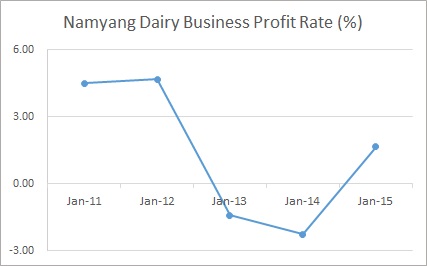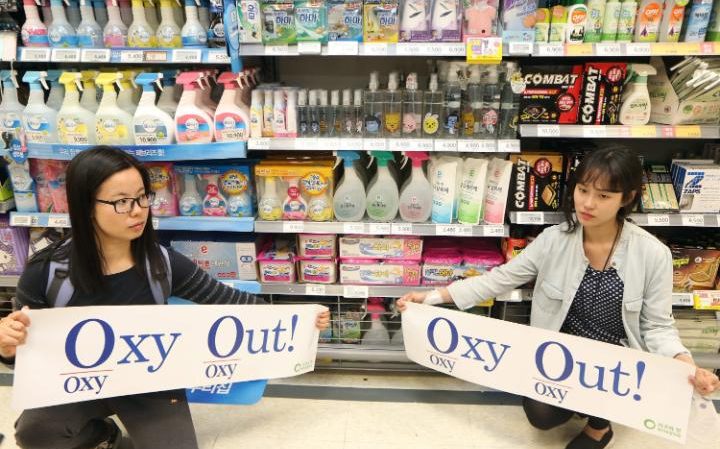

Like the case of Oxy, customers sometimes deliberately refuse to purchase particular products in order to achieve a certain purpose. This is called boycott. The term is originated from English landlord C.C.Boycott, who tried to banish peasants but failed because of the opposition of peasants. One of the most well-known economic boycotts is the boycott against beef price increase in US in 1973. It eventually succeeded as Richard Nixon decided to freeze the beef price.
In Korea, a boycott against Namyang Dairy Products is one of the most successful examples of boycotts. Namyang was the target of boycott in 2013 because Namyang forced numerous sales agents to buy and sell their products instead of products from other companies. Retailers refused to sell Namyang’s products, and soon the public participated in the boycott. As a result, Namyang’s sales decreased over 10%, and ran a deficit in 2013 for the first time since it has been established. However, Namyang made a turn to profit in third quarter of 2015, competing with Maeil Dairy for the top place in dairy industry. Moreover, Fair Trade Commission decided to lower the penalty fined on Namyang from 12.4 billion to 0.5 billion won. Eventually, the boycott against Namyang Dairy Products concluded only partially successful.
The problem is that there were no successful boycotts in Korea that damaged the business severely, or induced a dramatic change of policy. On the other hand, there were numerous boycotts that actually damaged the business in other countries. Yukijirushi Dairy and Enron corporation fell into bankruptcy and Volkswagen suffered a tremendous loss because of a boycott. Apple, Starbucks, and Coca-Cola were forced to change their policy. Civic activists were pointing out a lack of consciousness about corporation social responsibility, CSR, from both corporations and public.
According to the survey conducted by Presidential Committee of National Cohesion in Nov. 2014, 52.8 percent of respondents did not agree that Korean society awards enough for efforts and participation. Also, according to the research on the consumer's consciousness about boycott by J.H. Park published in 2010 at the Laboratory of Management consultant Kongju University, consumers do not tend to participate in boycotts as boycotting limits range of choice and causes discomfort to customers. From this research, it can be concluded that Korean people tend to think more highly of convenience than social issues and also believe that their action cannot change the society.
Still, civic activists are expecting the boycott against Oxy to be the first successful case of boycotting in Korea. Jiyeon Jeong, the secretary general of the Consumers Union of Korea, said, “In the case of Oxy, retailers and consumers are participating actively unlike before, because of the fatal outcome that Oxy caused.”
м Җмһ‘к¶Ңмһҗ © нҸ¬н•ӯкіөлҢҖмӢ л¬ё л¬ҙлӢЁм „мһ¬ л°Ҹ мһ¬л°°нҸ¬ кёҲм§Җ


